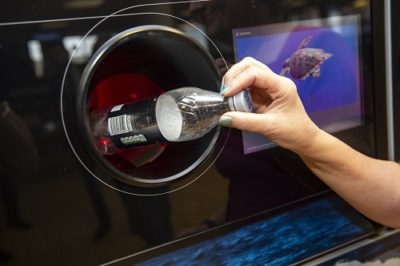The Environmental Audit Committee (EAC) has launched an inquiry looking at the introduction of deposit return schemes (DRS) in England and across the UK.
The EAC’s inquiry was launched on 12 February and comes ahead of the expected publication of three government consultations with significant ramifications for the waste management sector next month.
The consultations cover three areas of policy, as set out in the government’s Resources and Waste Strategy for England of 2018: consistency in recycling collections, extended producer responsibility (EPR) for packaging, and a DRS for drinks packaging.
The government hopes to implement a DRS for England from 2023.
Philip Dunne, the EAC’s chairman, said: “The introduction of a deposit return scheme is eagerly awaited. Our committee is keen to help frame the scheme to ensure it increases recycling and reduces waste, without creating unintended consequences which could undermine the need to minimise the environmental impact of what we consume.
“I urge those interested in both policy and practical aspects of the scheme to let us know your views.”
The EAC has invited written submissions from interested parties by 5 March on several areas relating to the DRS. These include the potential relationship between the DRS and other packaging waste initiatives promoted under the Resources and Waste Strategy and the types of waste to be collected under the scheme, amongst others.
Uncertainty
The EAC, which considers the extent to which the policies and programmes of government departments and non-departmental public bodies contribute to environmental protection and sustainable development, has launched its inquiry at a time when the shape of the proposed DRS is still uncertain.
As of yet, there is thought to have been no decision as to whether the scheme will operate as an ‘all-in’ model, which would target a large number of drinks beverages placed on the market irrespective of bottle size, or an ‘on-the-go’ model, which would limit the drinks containers in-scope to single format containers of a smaller size.
Either of the options would have significant consequences for local authority collections. The introduction of a DRS could see local authorities lose income as people return their beverage containers to shops rather than seeing them collected from kerbside, while it could also mean recycling boxes and lorries would be emptier.
DRS
A DRS aims to incentivise consumers to return packaging for a financial reward. The scheme involves adding a small deposit on top of the price of a product which is refunded when the waste is returned to an in-store collection point. Although deposit return schemes tend to focus on drinks containers, they could cover all types of containers and packaging.
Around 40 countries have a DRS in place. The plastic drinks bottle scheme in Norway is said to have led to 95% of those items being recycled.
In December 2017 the EAC found that the UK landfills, litters or incinerates 5.5 billion plastic bottles per year. It subsequently called for a DRS to be established to help tackle the rise in plastic waste.
In 2019 Scotland set out proposals to introduce a DRS in April 2021, which would follow an ‘all-in’ model covering PET plastic drinks bottles, aluminium and steel cans, and glass bottles (see letsrecycle.com story). The deposit level was set at 20p. In March 2020 the Scottish government pushed back the implementation date of the DRS to July 2022, citing concerns over the coronavirus outbreak (see letsrecycle.com story).
The post EAC launches deposit return scheme inquiry appeared first on letsrecycle.com.
Source: letsrecycle.com Packaging




